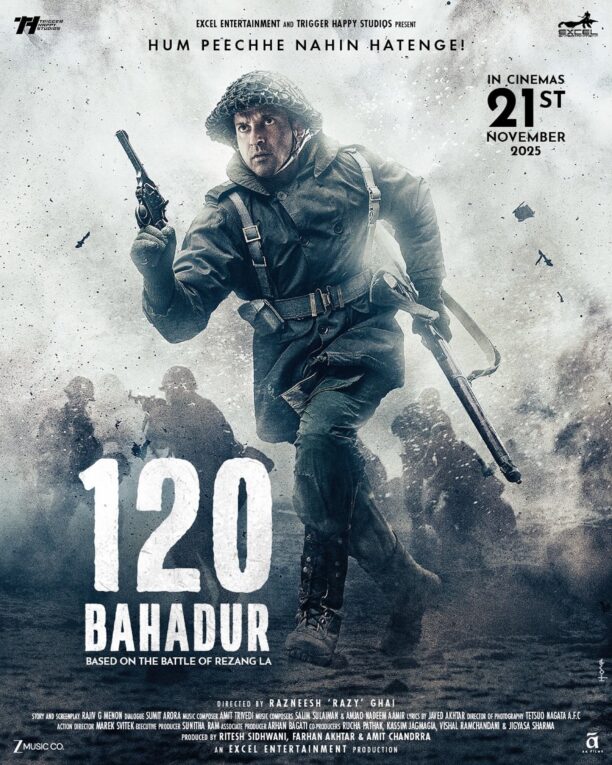
Yes, it martyrs. Except for a few songs which come on when… well, the going gets tough, there are no digressions, no stopover in this exceptional revisitation into a chapter of India’s border-strife history, some call it war, which we would rather bury under the rubble of recency.
Some would say, the past is the past. And in their own way, they are right. We can’t build new bridges unless we leave the past behind.
But here is the thing: unless we take a deep look at our past heroes, men (and women too, though in this case they are exempted from war-mongering) who gave up their lives for us, we cannot hope to ensure the future for generations to come. The future must by its very nature be built on the grave of our heroes.
At the end after Param Vir Chakra winner Shaitan Singh is martyred—this is no spoiler—his wife (Raashi Khanna) reads a posthumous letter to their son in which Shaitan (we still don’t know why he was called that although there is an entire sequence in which the soldiers giggle over the subject) tells his son to look after his two mothers: the biological and Bharat Mata.
Such sentiments in today’s environment of virtual cynicism and macabre recreations, may seem potentially corny. It is for this very reason that 120 Bahadur must be seen, and seen immediately, by every Indian who has ever sworn by the power of cinema to sway emotions and ideologies.
120 Bahadur doesn’t expend unnecessary time on emotions. There is a song which echoes J P Dutta’s Sandese aate hain from Border. The theme of homesickness in a war film is inescapable . Director Razneesh Ghai and his writer Rajeev G Menon don’t try to dodge the war tropes. They are at peace with their war saga.
The Battle of Rezang La on 18 November 1962, when 120 soldiers defended their post against a 3000-strong Chinese Army contingent, is recreated with stunning vividness. Cinematographer Tetsuo Nagata brings to every frame a sense of fluent urgency. There are no disposable moments, no jarring interludes and asides. And yet every soldier comes alive in posthumous glory: the Madhubala fan, the wannabe Mohammed Rafi, the chocolate-loving soldier, the cook whose terrible soup is swigged by the hungry soldiers….Little vignettes featuring the excellent supporting cast, go a long way in furnishing the war saga with a deep troughs of efficacy.
The cast is up to the task. Farhan Akhtar makes Shaitan Singh gentle but unconquerable warrior, a farmer and a soldier who gently leads his batallion into the night. Among the supporting cast Sparsh Wallia is outstanding as the platoon’s radio operator whose innocence and pain become the fulcrum of border brutality, and who lives to tell the tale of what transpired at Rezang La on that fateful night in 1962.
I wish the Chinese side was villainized more tactfully. They come across as caricatares rather than adversaries. And I wish Lata Mangeshkar’s ‘Ae mere watan ke logon8, which she sang for the soldiers who perished in the 1962 Indo-China, was used instead of a feeble Shreya Ghosal replica.
Whether it is war or art, some borders should never be crossed.










